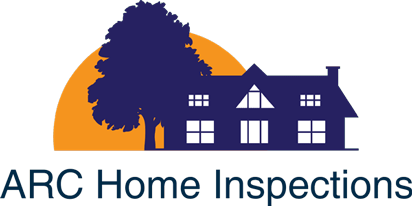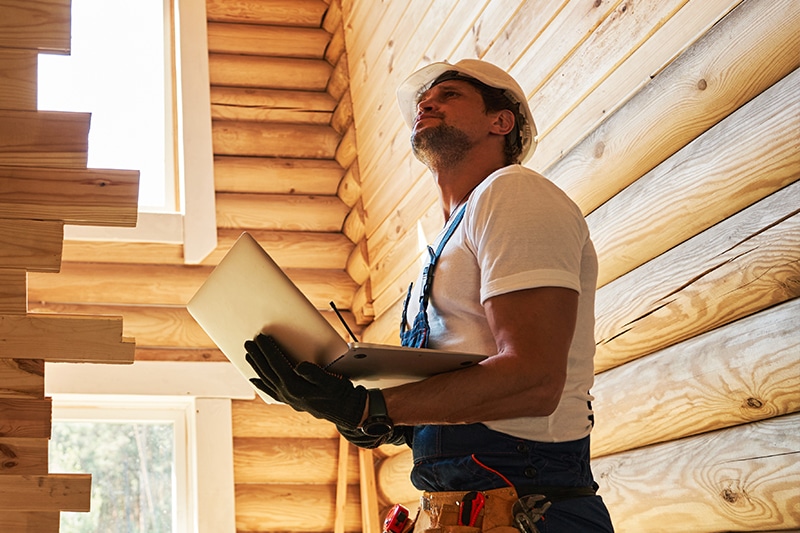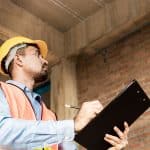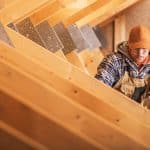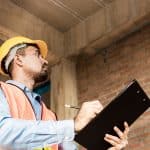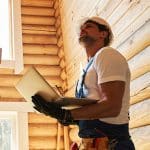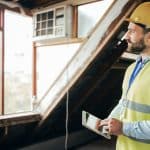Home Inspection Service: What Really Happens and Why It’s Important
Imagine walking through what seems to be your perfect future home on an open house day: everything appears in pristine condition until you realize that looks can often be deceiving. ARC Home Inspections serve as your safety net against hidden pitfalls that may not be obvious at first glance but could lead to expensive repairs down the road.
Scheduling an appointment with a certified home inspector from ARC Home Inspectionssoon after placing an offer is not just another box to tick off in the buying process; it’s crucial for securing your investment and peace of mind. From initial walkthroughs to meticulous evaluations of structural elements, electrical systems, and more, each step ensures that potential issues are caught early. What might surprise you is how detailed these inspections get, with inspectors gathering extensive notes and photographs—sometimes revealing unexpected findings that save buyers from regrettable purchases.
A home inspection by ARC Home Inspections is a comprehensive assessment of a property’s condition, covering aspects such as structural integrity, HVAC systems, plumbing, electrical work, and potential safety hazards. During the inspection, a certified inspector meticulously evaluates these areas to provide buyers with crucial insights into the property before finalizing a transaction.
The Home Inspection Process
When you decide to have a home inspected by ARC Home Inspections, it’s important to understand what happens during the inspection. It’s not just a quick look around; it’s a thorough examination to ensure that the property is free from major issues and safety concerns. Let’s break down the steps so you know exactly what to expect. A home inspection contingency is crucial in this process as it allows buyers to renegotiate the sale price or withdraw from the purchase if serious issues are discovered, thereby protecting the buyer’s interests.
Step I – Scheduling the Inspection
The first step in the process is setting up an appointment with a certified home inspector. Usually, this happens after an offer has been made on a property because the inspection needs to be scheduled and completed within a certain timeframe outlined in the purchase agreement. Your real estate agent can help you schedule the inspection and guide you through the process, ensuring everything is completed promptly. It’s best to schedule the inspection as soon as possible to avoid any delays in the buying process.
Step II – Initial Walkthrough
Once the inspector arrives at the property, they start with a walkthrough. Using a home inspection checklist during this initial walkthrough ensures that all aspects of the property are examined. This is where they visually examine both the exterior and interior of the house to get an overall sense of its condition. They’re looking for any visible issues or concerns that might need further investigation during the detailed inspection.
Step III – Detailed Inspection
After the initial walkthrough, it’s time for the comprehensive inspection. The inspector starts evaluating various systems and components within the home. This includes examining structural elements, plumbing, electrical systems, heating and cooling units, and more. The evaluation of the HVAC system is a crucial part of this detailed inspection, highlighting its importance in the overall assessment. Each aspect is carefully scrutinized for defects, potential safety concerns, and any signs of wear and tear that may need attention.
Step IV – Documentation, Photography, and Home Inspection Report
During the inspection, the home inspector will take detailed notes and photographs of their findings. These records are crucial as they will be included in the comprehensive home inspection report, which provides a thorough overview of the property’s condition. Photographs help provide visual evidence of any issues found, while detailed notes ensure every aspect of the property gets covered.
Did you know? Documenting findings through photos helps provide clear evidence for both buyers and sellers.
Step V – Post-Inspection Discussion
Once the inspection is complete, certified home inspectors often meet with the buyer to discuss their major findings. This gives the buyer an opportunity to ask questions or seek clarification on any concerns that were discovered during the inspection.
By understanding each step involved in a home inspection, you can see just how thorough and comprehensive this process is. It provides peace of mind for both buyers and sellers, ensuring that all aspects of a property are thoroughly examined before a transaction takes place.
Understanding what happens during a home inspection is critical for informed decision-making when it comes to purchasing a property. Now, let’s explore some of the Common Defects Found During Inspections to shed light on potential areas of concern in properties.
Common Defects Found During Inspections
When it comes to home inspections, uncovering defects is a critical part of ensuring that a property is safe and sound. Let’s take a closer look at some of the most common issues that home inspectors frequently come across and why they are important to address. A professional home inspection is essential in uncovering these common defects and ensuring a thorough evaluation.
Roof Damage
One of the most frequent findings during home inspections is roof damage. This can encompass a wide range of issues, from loose or missing shingles to leaks and damaged flashing. If left unaddressed, roof problems can result in significant water damage, compromising the structural integrity of the property and leading to costly repairs down the line.
Imagine discovering a small area of missing shingles during an inspection. While it may seem like a minor issue, if left untreated, it could pave the way for water infiltration that gradually spreads, causing extensive damage to the roof deck, attic insulation, and even the interior ceilings and walls.
Electrical Problems
Electrical problems are another common finding during home inspections and should not be overlooked. These issues can range from faulty wiring and outdated electrical panels to insufficient grounding, all of which pose significant fire hazards if not properly rectified.
Consider outdated electrical panels; while they may have been sufficient when initially installed, modern usage demands have increased significantly over time. Inadequate electrical infrastructure can lead to overheating and potential fires in extreme cases. Identifying and addressing these issues ensures the safety and security of the property’s occupants.
Plumbing Issues
Plumbing issues are also frequently uncovered during inspections, including leaking pipes, outdated plumbing systems, and problems related to water pressure. Left unattended, these issues can severely affect the functionality of a home, leading to water damage, mold growth, and reduced water efficiency.
For instance, a minor leak in a pipe may appear inconsequential at first glance. However, over time, this persistent leak can create conditions conducive to mold growth within wall cavities or under flooring, presenting health risks to inhabitants and demanding extensive remediation efforts. Early detection and mitigation of plumbing issues are pivotal in preserving both the structural integrity and air quality within the property.
Foundation Cracks
The presence of foundation cracks or signs of settling is arguably one of the most concerning discoveries during a home inspection. These indicators could point to structural instability, potentially requiring substantial interventions to address underlying foundation issues.
It’s akin to identifying hairline fractures in the frame of a building; while they may start small, if left unattended, they can widen over time, jeopardizing the stability of the entire structure. Addressing foundation concerns is crucial not only for maintaining property value but also for ensuring the safety and security of its inhabitants.
By illuminating these common defects found during home inspections and their potential impact on a property’s value and safety, it becomes clear why thorough assessments are essential before committing to a real estate transaction.
Understanding what common defects may be found during a home inspection sheds light on what to expect from a qualified home inspector when evaluating your potential new residence.
What to Expect from Certified Home Inspectors
When you schedule a home inspection, you’re entering a crucial stage in the process of buying a home. This isn’t just about being shown around the property; it’s an in-depth, professional examination of every aspect of the house’s structure and functioning. Here’s what to expect from a reputable home inspector: Building inspection engineers play a vital role in maintaining professional standards and regulations in home inspections, ensuring integrity and value in the inspection practice.
Professionalism
A professional home inspector is obligated to perform their duties with transparency, integrity, and proficiency. Real estate agents often work closely with home inspectors to ensure a smooth inspection process, adhering to ethical standards and maintaining unbiased objectivity. They should have your best interests at heart—bringing attention to any potential issues and providing honest feedback regarding the condition of the property.
Detailed Reporting
Upon completion of the inspection, expect to receive a detailed, written report summarizing the findings. This report should include photographs highlighting key areas of concern and specific recommendations for addressing any issues that were identified during the inspection. The purpose of this comprehensive report is to provide you with a clear understanding of the property’s condition. Considering the home inspection cost, a detailed report ensures you get value for the money spent on the inspection.
Versatility
Home inspectors are required to evaluate multiple systems within a property, ranging from structural elements, electrical systems, plumbing, heating, and cooling systems, among others. A proficient home inspector should possess a diverse knowledge base, allowing them to assess these different aspects accurately. This versatility ensures that you receive a thorough evaluation of the various components contributing to the property’s overall condition.
Communication
An approachable demeanor and effective communication skills are essential attributes of a competent home inspector. During and after the inspection, you should feel comfortable asking questions and seeking clarifications regarding any concerns you may have. Inspectors must be willing to provide clear explanations of their findings in a way that is easily understandable. Open communication with your inspector is crucial for gaining insights into the condition of the property and making well-informed decisions.
By knowing what to expect from your home inspector and what standards to hold them to, you can ensure that you receive an accurate evaluation of the property’s condition.
In essence, a thorough home inspection by ARC Home Inspections is your key to understanding the true state of a property before finalizing a transaction. From identifying common defects to ensuring professionalism in every aspect of the inspection, this process is invaluable for making an informed home-buying decision.
To safeguard your investment and ensure your future abode is free from surprise drawbacks, scheduling a comprehensive home inspection is paramount. Contact us to schedule an appointmenttoday!
